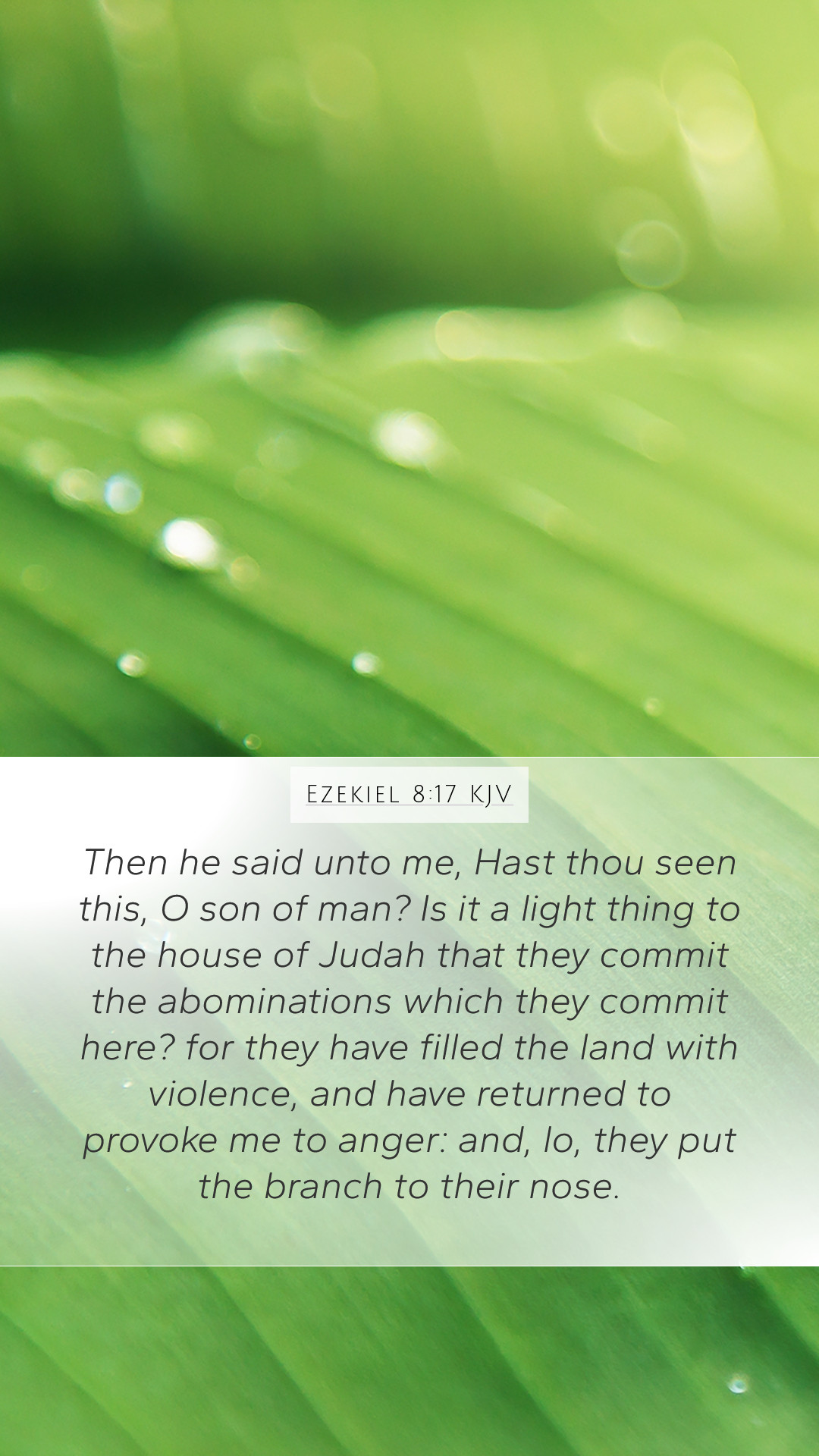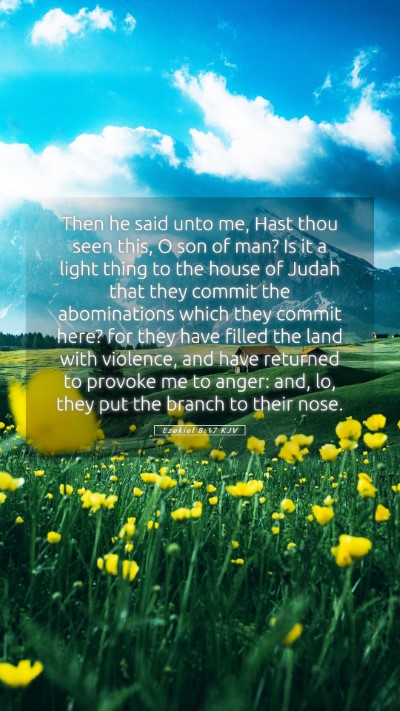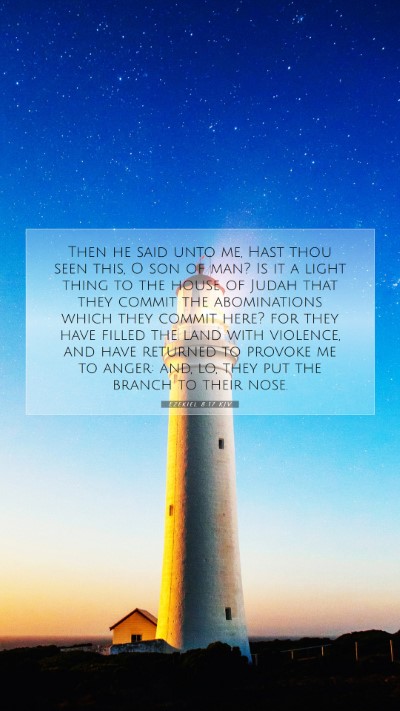Ezekiel 8:17 - Understanding Scripture through Commentary
The Bible verse Ezekiel 8:17 presents a vivid illustration of the spiritual decline and idolatry present in the ancient Israelite community. By combining insights from renowned public domain commentaries, we can gain a deeper understanding of this important scripture.
Verse Overview
Ezekiel 8:17 states: "Then he said to me, 'Have you seen this, O son of man? Is it a trivial thing to the house of Judah to commit the abominations which they commit here? For they have filled the land with violence, and then they have returned to provoke Me to anger; indeed, they put the branch to their nose.'"
Bible Verse Meanings
- Spiritual Seriousness: The commentary of Matthew Henry emphasizes that the actions of the house of Judah are a direct affront to God’s holiness. The trivialization of such grievous sins points to a profound disregard for divine authority.
- Violence and Idolatry: Albert Barnes highlights the dual themes of violence and worship of idols, illustrating the systemic issues within Judah. This verse reflects the gravity of their sins and contrasts the expected purity of worship with the reality of abomination.
- Provocation of God: Adam Clarke draws attention to the phrase "put the branch to their nose," suggesting a blatant act of defiance against God, further establishing the seriousness of their actions in provoking the Lord.
Application of Ezekiel 8:17 in Modern Context
Understanding this scripture is vital for today's believers; it challenges the reader to consider the seriousness of sin in their own lives and the consequences of turning away from God.
In Bible study groups, this commentary can spur discussions on how contemporary practices may echo the ancient idolatry condemned in this verse. Furthermore, it can guide individuals in personal reflection during online Bible study sessions.
Historical Context of Ezekiel 8:17
This passage was revealed to the prophet Ezekiel during a time of great crisis for Judah, emphasizing the need for repentance and returning to true worship of Yahweh. Understanding the historical conflicts and societal declines can enhance our interpretation and application of the text.
In-Depth Bible Verse Analysis
In examining the verse through various lenses—literary, historical, and theological—one gains a rich tapestry of meaning. This analysis leads to insights about human nature and the constant struggle against idolatry in different forms.
Additional Bible Cross References
- Jeremiah 7:30-31: A parallel call to attention regarding the people's idolatrous practices.
- Isaiah 1:15-17: God’s disdain for ritual worship devoid of righteousness.
- 2 Kings 21:16: Reference to the bloodshed and violence in Judah, contributing to divine judgment.
Conclusion
In summary, Ezekiel 8:17 serves as a timeless reminder of the peril of complacency in spiritual matters. The combined insights from Matthew Henry, Albert Barnes, and Adam Clarke provide a robust foundation for understanding this scripture, making it an invaluable resource for Bible study lessons and personal reflection.
As we apply these insights, let us aim to cultivate spiritual awareness that steers clear of idolatry in any form, echoing the calls to repentance and connection with God that resonate throughout Scripture.


